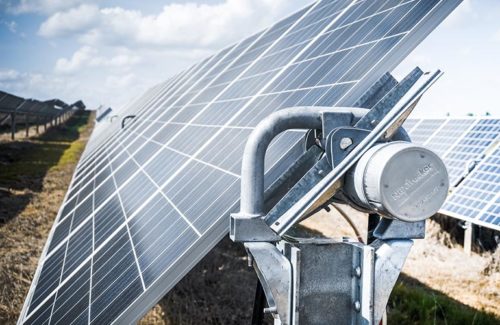As the awareness of sustainable living continues to grow, more homeowners are considering solar technology as a vital step toward reducing their carbon footprint and electricity costs. The realm of smart solar solutions offers numerous possibilities, not only for energy generation but also in terms of integration with smart home technologies. However, with a vast array of options, selecting the right system can be daunting. This guide will walk you through the best smart solar choices tailored to your needs and preferences, highlighting essential factors that will help make your decision as informed as possible.
Selecting the right smart solar system requires understanding different components such as solar panels, inverters, and the integration capabilities with home automation systems. In this evolving market, innovations are frequent, and the benefits extend beyond environmental conservation to substantial savings on energy bills. In this blog post, we will delve into crucial aspects including technology options, cost considerations, compatibility with smart homes, maintenance insights, and return on investment so that you can choose a system that aligns perfectly with your lifestyle and budget.
Understanding Smart Solar Technology
At its core, smart solar involves not just harnessing energy from the sun but doing so in a way that integrates seamlessly with smart home technologies. This encompasses advanced monitoring systems that help in real-time tracking of energy production and consumption. For deeper insights into these systems, this website could serve as an excellent starting point. Such capabilities allow homeowners to optimize their energy usage according to different patterns throughout the day or adjust settings remotely for maximum efficiency.
Choosing the right technology involves looking at current solar modules equipped with IoT capabilities. These systems sync with other smart devices within the home to provide automated control over power usage and even predictive maintenance alerts which can drastically reduce service costs over time.

Cost Evaluation and Financing Options
Integrating smart solar systems involves initial setup costs which can vary significantly based on the size of your home and specific energy requirements. While the upfront investment might seem substantial, federal credits and tax rebates can often offset a large portion of these expenses. Additionally, many companies offer financing options that enable easy monthly payments rather than a hefty upfront fee.
It’s also prudent to analyze lifetime costs and savings thoroughly. A comprehensive cost analysis includes not only installation but also potential maintenance expenses versus long-term energy savings. Ensuring that you have a clear financial plan will help in selecting a system that offers both affordability and efficiency.
Compatibility with Smart Home Ecosystems
A major benefit of modern smart solar systems is their ability to integrate into existing smart home setups seamlessly. This integration enables centralized control over both energy consumption and other automated tasks within the house through a single interface—be it a smartphone or any other device.
When choosing a smart solar system, verify its compatibility with popular home management platforms like Google Home or Amazon Alexa. This compatibility ensures that all interconnected devices can communicate effectively without requiring multiple hubs or interfaces, thus enhancing user experience.
Maintenance Efficiency and Durability
Maintenance is a crucial aspect when it comes to solar systems; however, smart technology significantly reduces the effort required here. Many modern systems come equipped with diagnostic tools that alert you about potential issues before they escalate into costly repairs. Additionally, these tools recommend routine checks which preserve the efficiency and lifespan of your installation.
The durability of solar equipment has improved considerably over time due to advancements in technology—which means less frequent need for replacements and better resilience against environmental factors. When picking your option, consider manufacturers who offer extended warranties that cover potential malfunctions or efficiency losses over time.
Evaluating Return on Investment
The potential for savings is one of the most compelling reasons homeowners opt for smart solar systems—the initial investment usually pays off within several years depending solely on your usage patterns and local energy rates. It’s essential to project this return on investment (ROI) based on realistic consumption scenarios to understand when your system will start generating profit.
Analyze past electricity bills against what you would save by generating your own power; additionally considering any possible future hikes in utility rates can give you a clearer picture of long-term financial benefits. Furthermore, solar eration increases property attractiveness significantly should you consider moving in future—a definite plus!
To summarize our discussion on choosing the best smart solar choices, it’s essential to consider various strategic angles—from technology alignment to financial implications—all tailored around making this leap as seamless as possible. Apart from becoming more environmentally responsible, you are also setting yourself up for significant financial gains in the long run.
Diving into smarter choices now could shape a brighter and more sustainable future; remember to review each aspect carefully while keeping abreast of new developments in this exciting field of renewable energy solutions.

Leave a Reply